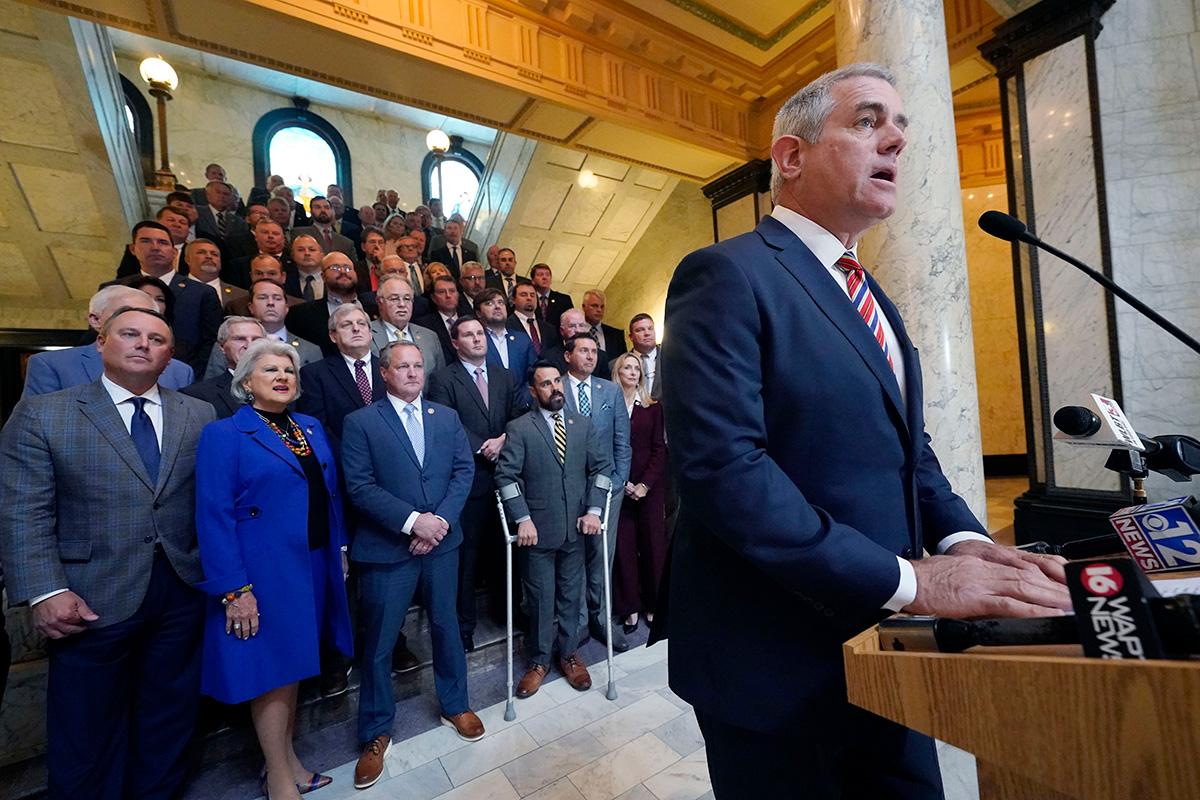We hear so much hand-wringing in Mississippi about why so many people who grew up here leave the state and take their talents and initiative with them. But what we don’t talk about nearly enough is government secrecy.
I’ve been thinking all week—between fundraising and editing and board prep, oh my—about Sunshine Week, an annual and needed tradition in journalism to bring attention to the lack of transparency in government. I knew I needed to address it here, but dang, where do I start in this state filled with secrecy, behind-closed-doors deals and a Legislature that won’t even declare itself a public entity subject to open-meetings laws?
My answer came from watching the Capitol reeking with shenanigans this session to bring back the public initiative process that its buddies at the Mississippi Supreme Court halted after a vote some didn’t exactly agree with. Lawmakers want to bring it back, but they can’t allow Mississippians to force a public reckoning on a policy like abortion rights, which a bipartisan voting bloc defeated in 2011. (At least one party understands the potential political impact of the Personhood defeat here.)
So legislators talk among themselves a lot about the gamesmanship of looking like they’re supporting transparency and the public’s right to both know and decide, and then they pretty much do what the majority party wants to anyway. It’s power protection at best, and yes this putrid approach to state “democracy” runs off smart young people in droves, and not just those who might vote in one way or another.
Legislature a ‘Public Body’ Or No?
You probably know that reporter Nick Judin and I decided to challenge former House Speaker Philip Gunn’s propensity to bring his chamber’s Republicans—also the House majority—into secret caucus meetings not open to the public and journalists to apparently decide how they would vote in a bloc. This meant that any debate and discussion of policymaking for House was outside public view. I told Nick to show up for one and likely get kicked out, which happened, so we could challenge it in court.
Our challenge drew a lot of attention, and the Ethics Commission partly sided with us, which frankly was a victory in this state. But it emerged from the House’s legal arguments that it didn’t believe the Legislature itself was a public body. Seriously? What could be more of a public body than the state’s highest lawmaking institution? I choked on my coffee to hear such an absurd argument.
With the help of attorney Rob McDuff and the Mississippi Center for Justice, we sued and should have a hearing soon in Hinds County Chancery Court. (It was delayed past this session, unfortunately.)
We know there are legislators in both parties who agree with us that, cough, the Legislature should just admit it’s a public body and act accordingly and, second, House Caucus meetings should be open just as Lt. Gov. Delbert Hosemann’s Senate meetings are open to the public. But leadership isn’t exactly falling over itself to keep this core public trust issue front and center.
One Path to Trusted Elections
Speaking of trust, the annual tedious work of Ashton Pittman and William Pittman to fact-check and make public accurate statewide voting precinct lists every primary and election is also a path to showing how state officials can and should do more to ensure that the public is getting accurate information they deserve. The list of precinct locations belongs to the public, and it needs to be accurate with a good fact-checking mechanism engaged every election and primary season as national and state civil-rights and voting organizations have demanded as a result of the Pittmans’ efforts. Then this session, Rep. Zakiya Summers introduced and the House unanimously passed a bill this session to forbid voting precinct change in the 60 days before an election.
It is important to remember that sunshine often dies inside muddled systems, not just because someone is hiding, say, a precinct change intentionally. But as I told someone last week in an interview about our approach to election coverage, including this perennial Trusted Elections work, the lack of a systemic approach to ensuring precinct-list accuracy opens a door for a local official to move a precinct intentionally. We’re not saying that has happened, but it is a risk if the holes in this system aren’t prioritized and repaired.
Be clear: Precinct problems are a bipartisan problem overseen by officials of both major parties, as the mess in Hinds County’s election showed last fall. And our findings point to a bipartisan mix of culprits making errors.
This one really should be easy to solve—and not a whole lot harder than legislators finally admitting publicly that the Mississippi Legislature is indeed a public body. Both fixes would be good steps toward telling young people of our state that they can choose to live in a state not plagued by government secrecy and misinformation.






